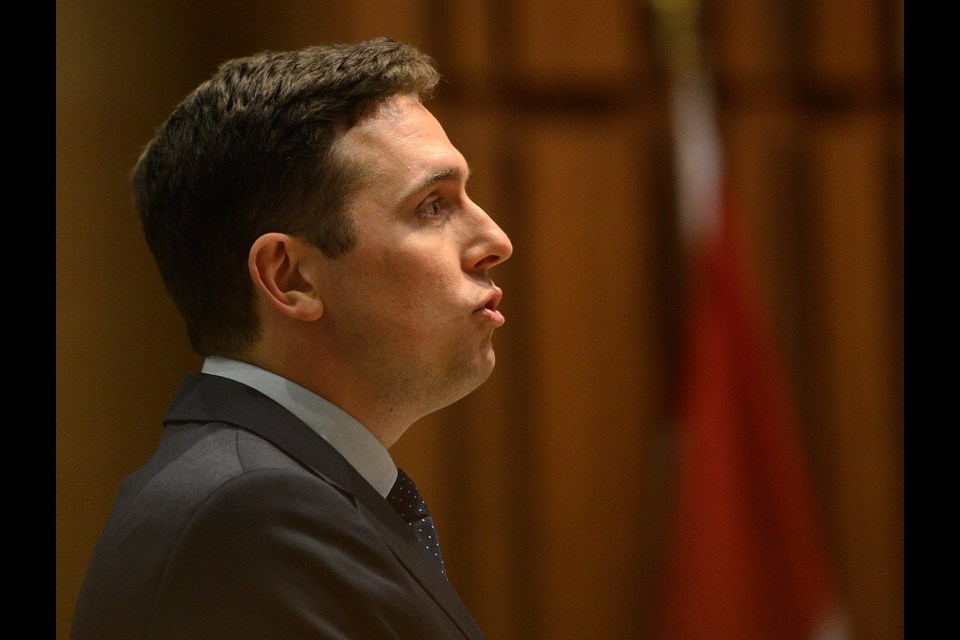Guelph City Council has officially rejected online voting for the next municipal election.
At a meeting that started Monday night and lasted over six hours, council voted 7-6 against a motion to have online voting available for the advance polls in 2018.
It echoed a 7-5 vote at a Committee of the Whole meeting several weeks ago, a meeting that Mayor Cam Guthrie couldn’t attend.
Voting against online voting were councillors Bob Bell, Karl Wettstein, Leanne Piper, Phil Allt, James Gordon, June Hofland and Mike Salisbury.
Voting in favour were councillors Cathy Downer, Christine Billings, Mark MacKinnon, Dan Gibson, Andy Van Hellemond and Mayor Guthrie.
Monday’s meeting included 15 delegates, 13 of them speaking against online voting at this point.
Those delegates included the usual rogue’s gallery of council-watching regulars, but they also included two individuals with a much more in-depth knowledge of cyber security and online voting issues.
Aleksander Essex, a
He said there are “insufficient advances in the technology to implement it at this time.”
“I can’t tell you what to think,”
Dave Suffling, who works for a private cyber security company, also spoke out against online voting at this time.
“I would like to tell you what you want to hear, but I have to tell you what you need to hear,” Suffling said in speaking against online voting.
Others also spoke out against online voting.
“Can we be assured that (online) voting is a level playing field?” asked George Kelly.
Lin Grist said she is opposed to online voting “at this time.”
“Voting in an election is not like shopping for groceries,” she said, saying it’s about protecting the democratic process, not convenience.
Former city councilor Maggie Laidlaw said council was “naive” when it gave the go-ahead to advanced online voting for the 2014 municipal election.
“
Hugh Whiteley spoke of the lack of community engagement on the issue before decisions were made.
Not all delegates were in favour of no online voting.
Jason Dodge, speaking on behalf of the Guelph Accessibility Advisory Committee (GAAC), urged council to provide online voting in 2018. He said to remove the option will put up a barrier for those people.
“In the 2014 election people with a disability were thrilled to be able to vote online,” Dodge said, adding that there is an element of risk no matter what the voting method.
Brad Howcroft, chairperson of the GAAC, said fraud is possible no matter what the method.
“There’s so many people that need this system,” said Howcroft, who later admitted that he would be willing to look at other options.
“Small things to you guys are huge to us,” Howcroft said in stressing the importance of being allowed the voting accessibility that online voting allowed.
Laura Root, who has a disability, also asked that online voting by maintained.
She said those opposed seem centred on “what ifs.”
“My right to vote is so much more important than ‘what if?’” Root said.
Mayor Cam Guthrie opened Monday’s meeting with an apology for remarks he made two weeks ago in which he accused some councilors in a GuelphToday article of “suppressing” voters by taking a stand against online voting.
Downer pointed out that 97 municipalities in the last election chose to use online voting.
Downer also asked city clerk Stephen O’Brien why he was so confident about online voting.
“We recognize that there are potential risks in a paper ballot process like there are in online voting process and we try our best to mitigate those risks,” O’Brien said.
“I truly believe that our job is to understand the risks and do our best to mitigate those risks.”
Coun. Dan Gibson believes internet voting was part of the reason
“I’ve seen that the voter turnout increased and I’m fearful that we’re going to go back to the days of 34-35 per cent (voter turnout),” Gibson said.
Coun. Christine Billings said not having online voting “would be an injustice” to those with accessibility issues.
“The only valid argument for online voting that I have heard is the issue of accessibility for those that need it,” Coun. Bob Bell said. “For me, what’s important is that we protect the integrity of the process.”
Coun. James Gordon said that those that have expressed caution regarding online voting “did the research.”
Coun. June Hofland said the democratic process was much more important than the convenience of online voting.
“I believe we need to maintain the integrity of our voting process and I believe that internet voting compromises that integrity,” Hofland said.
